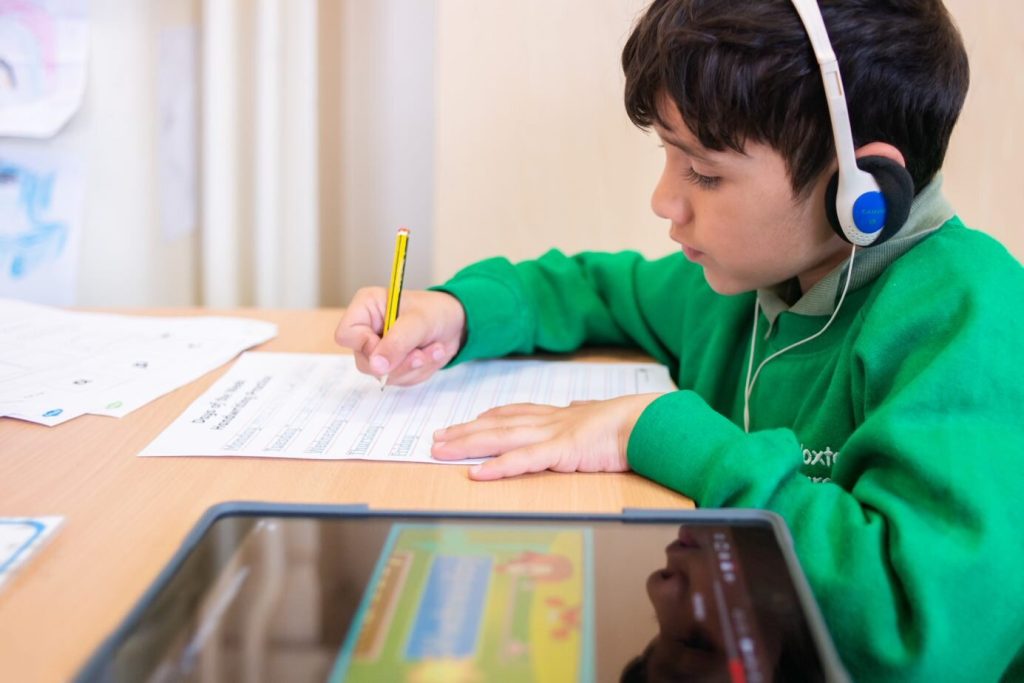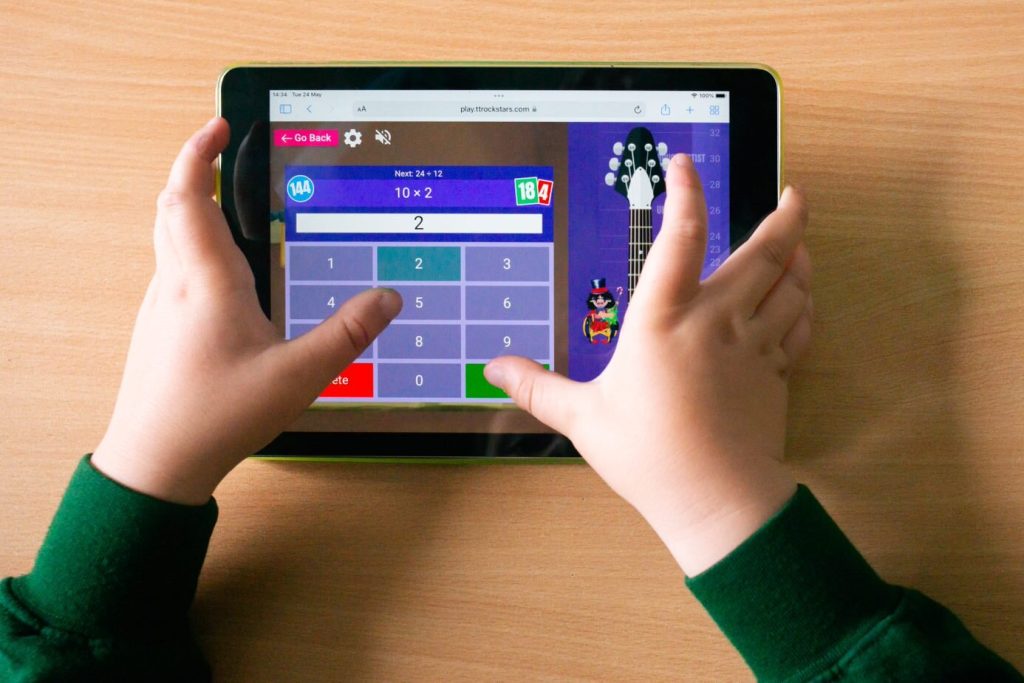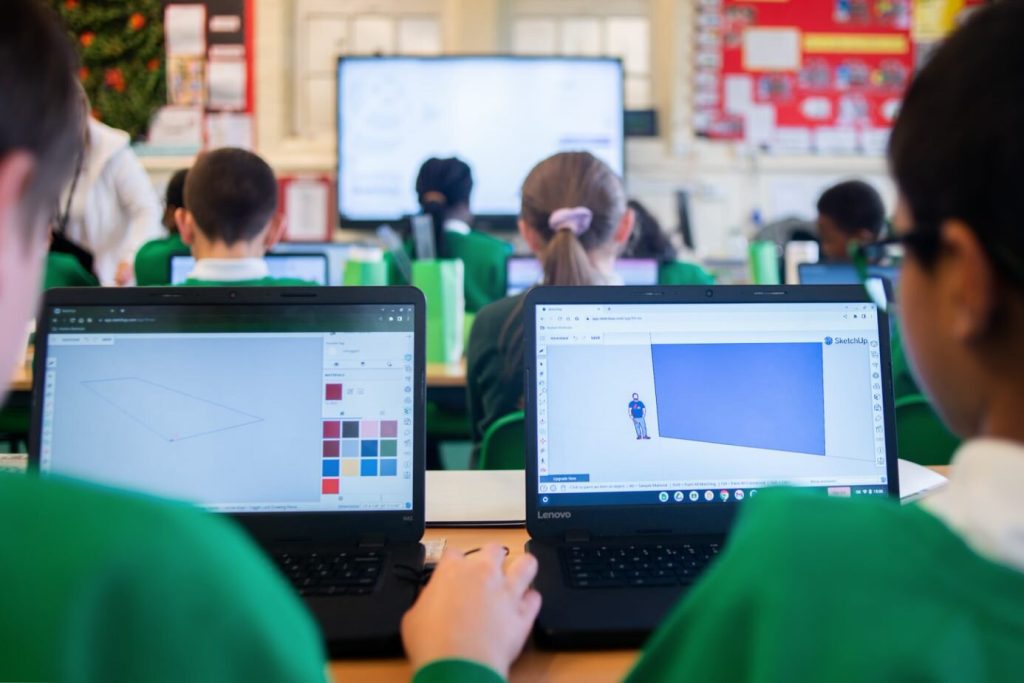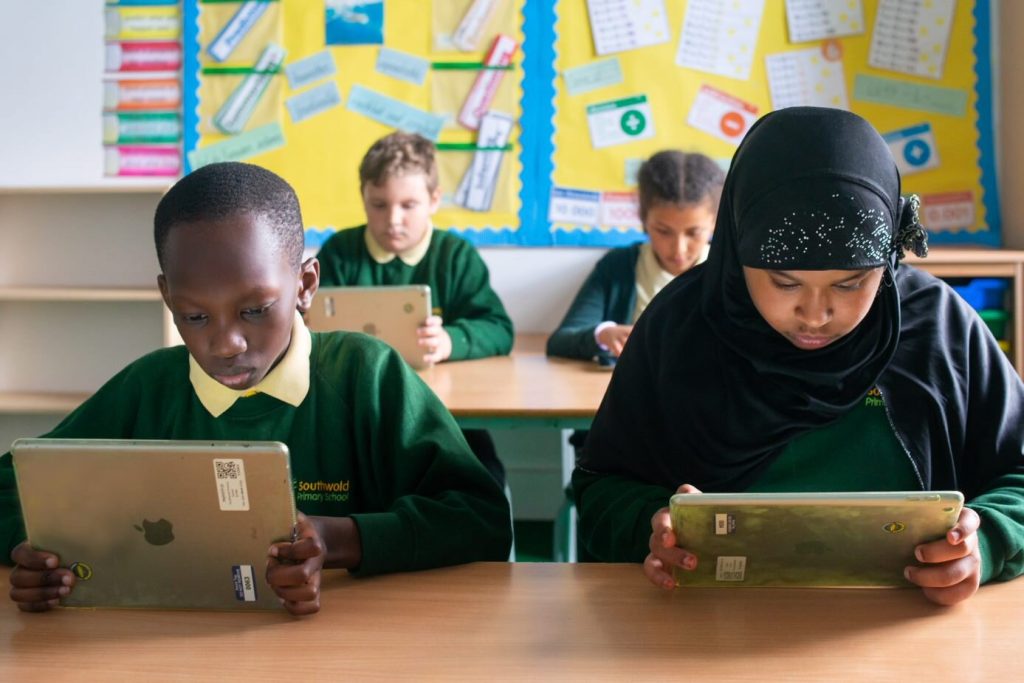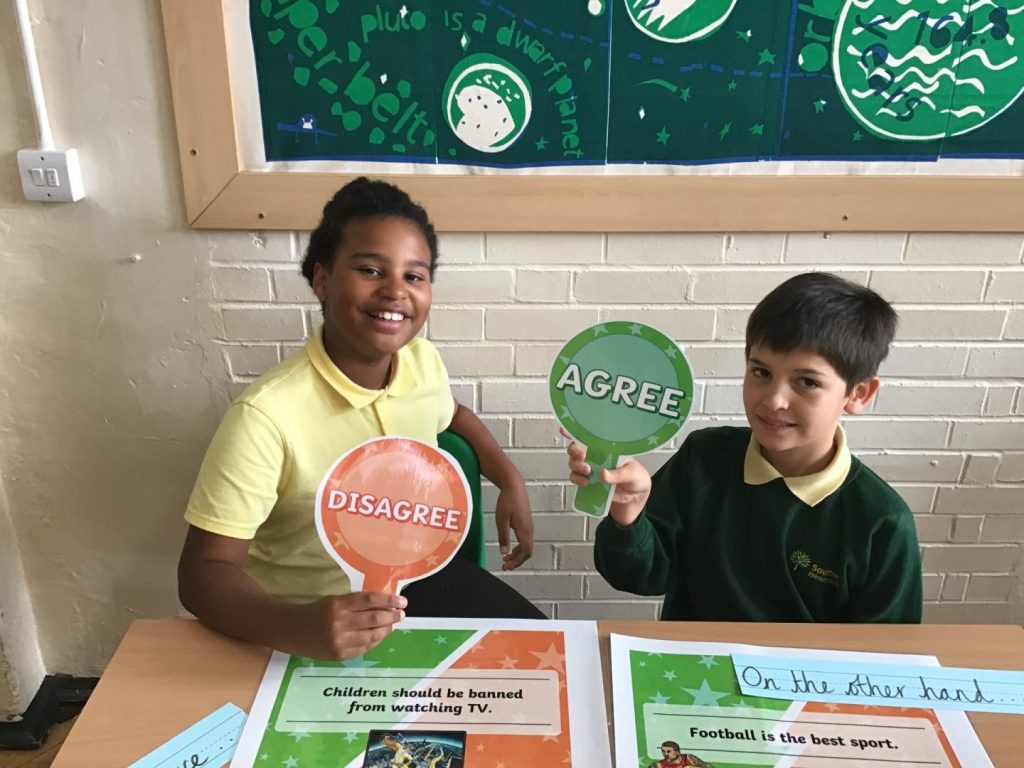Our Computing curriculum is designed to cover all of the knowledge and understanding as set out in the National Curriculum. To ensure that children develop a secure knowledge that they can build on, our Computing curriculum is organised into a progression model that outlines the knowledge, skills and vocabulary to be taught in a sequentially coherent way. Our Computing curriculum is designed around the four key areas which include computer science, information technology, digital literacy and online safety.
Computing has strong links to a variety of other subjects such as mathematics, science, design and technology and therefore we believe that, as an essential part of the curriculum, it is also integrated into all areas of learning, using a range of hardware, software and opportunities. We provide rich and varied learning experiences through a curriculum that is designed to balance acquiring a broad and deep knowledge alongside opportunities to apply skills in various digital contexts.
Core Elements of Computing Teaching
- Engaging and inspiring lessons that promote critical thinking and curiosity.
- High quality instruction and questioning with teachers providing carefully planned sequenced lessons that build on knowledge, skills and understanding.
- Retrieval of previous learning and explicit links through concepts that connect new learning with what the children already know.
- Cross curricular technology access to enhance learning experiences including iPad and Chromebooks.
- A focus on ambitious vocabulary used in context.
- Carefully chosen and planned lessons and activities that are scaffold and adapted to ensure all children meet the intent of the Computing curriculum.
Curriculum
Our EYFS follows the Early Years Foundation Stage framework. ‘Understanding the World’ involves guiding children to make sense of their physical world and their community through opportunities to explore, observe and find out about people, places, technology and the environment. With access to iPads and BeeBots, as well as other technology across learning, pupils develop early competency. Teachers facilitate children’s curiosity with challenge and modelling how to use the equipment carefully and safely.
In Key Stage 1, children will learn to understand what algorithms are, how they are implemented as programs on digital devices; and that programs execute by following precise and unambiguous instructions. They will be taught how to create and debug simple programs and use logical reasoning to predict the behaviours of simple programs. They will be shown how to use a range of technology purposefully to create, organise, store, retrieve and manipulate digital content as well as recognise common uses of technology beyond school. They will be taught to use technology safely and respectfully, keeping personal information private; identify where to go for help and support when they have concerns about content or contact on the internet or other online technologies.
In Key Stage Two, the children will build on their knowledge and experience from Key Stage One and design, write and debug programs that accomplish specific goals by decomposing them into smaller parts. They use sequence, selection and repetition in programs, use logical reasoning to explain how some simple algorithms work and correct errors in their own and existing programs. Children will be taught to understand computer networks, including the internet, and the opportunities they offer for communication and collaboration. They will use search technologies effectively, learn to appreciate how results and selected and ranked, and be discerning in evaluating digital content. Children will be taught to select, use and combine a variety of software (including internet services) on a range of digital devices to create a range of programs, systems and content that achieve given goals. They will be taught to use technology safely, respectfully and responsibly; recognise acceptable and unacceptable behaviour and be clear how to identify a range of ways to report concerns about content and contact to keep themselves and others safe.
Cultural Capital
We strive to provide rich and engaging opportunities for children to see aspects of computing being used and applied in the real world. Through enrichment opportunities such as Work Week we invite visitors into school to share their expertise with children, while learning more about how the skills acquired at school could lead to a future career. We take advantage of opportunities to meet experts and isolate their learning within computing or across the STEM subjects.
Digital Leaders contribute to the twice a year online safety newsletter compiled for the community and to the organisation of the annual Online Safety Day which provides opportunity to highlight and reinforce core theme applicable both in school and beyond. They also support the delivery of parent coffee mornings termly.
A laptop loan scheme is in place for family access to technology and home learning subscriptions allow for the continuation of age appropriate cross curricular learning at home.
Accessibility for all children
Our expectation is that the majority of children will move through the programmes of study at broadly the same pace through supporting children with additional inputs, interventions, peer support and resources.
The ambitious and inclusive nature of the curriculum allows a range of access points that ensure all children, including those with special educational needs, succeed, regardless of their circumstances, with high expectations set for everyone.
For more information on our approach to teaching of Computing, please look at our coffee morning timetable for the next available session or make an appointment in the school office to speak with our Computing subject leader.
Computing Gallery
